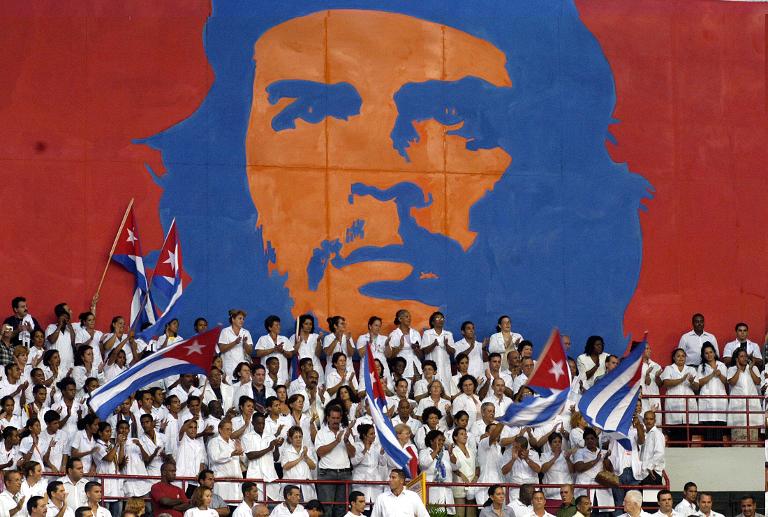The pandemic is exposing the folly of investing more in weapons of war than health and education, and experts say the countries handling the disease most effectively will emerge as the ones to emulate following the pandemic.

Young Cuban doctors take part in their graduation ceremony on September 19, 2005 in Havana, Cuba.
The Covid-19 pandemic could alter the world’s power relations, but America’s war-talk towards China will continue beyond the coronavirus.
At least one international relations expert believes that a solution to the virus may come from one of the world’s developing countries, because they got their priorities right by prioritising health and education instead of accumulating weapons of war.
International relations expert and lecturer at the University of Pretoria, Dr Sithembile Mbete, said: “I think the virus is reshaping global power relations. China will come out of the situation stronger in both hard power, economically and militarily, and soft power. It is boosting its reputation by sending assistance across the world and the whole world is using its expert methods for dealing with the crisis with social distancing etc.
“For as long as Trump is US president there’s always the risk of war talk because he is so volatile. UN Secretary-General Antonio Guterres has called for global ceasefires in all conflicts for the duration of the Covid-19 crisis,” Mbete said.
Mbete said in Italy the spread of the virus has outpaced the capacity of that country’s health system and large numbers of their doctors have died because of the virus. “I think it’s a massive indictment on richer countries that it is Cuba and Somalia that are responding to the crisis instead of them. Cuba has long been a major exporter of healthcare workers in crisis. They’re among the best in the world,” she said.
Political economy analyst Zamikhaya Maseti attributed the fact that the developing nations are leading the charge and helping the rich countries on coronavirus to their prioritisation of health and education, instead of spending their monies on increasing weapons.
Cuba is a great example because since its independence in 1902 it invested in training doctors and ensured its scientists concentrated on finding medical solutions. The opposite was true with America, which put its energies into becoming a military superpower.
“Look now, the hospitals in places like New York are not coping with the Covid-19, they need a medical solution and the weapons of war are useless,” Maseti said.
Maseti said Cuba and several developing countries got their priorities right between 40 and 50 years ago.
“It’s important that instead of building military might, countries must prioritise their health systems – we must invest in health and education,” he said.
Maseti said the crisis in the Eurozone countries such as Germany, Italy, Spain and UK, among others, was exacerbated by their aging populations that could not cope with doing certain modern technology jobs. Germany alone needed more than 200,000 nurses and relied on migrants to deal with advanced technological developments to enhance the country’s economy.
“Those family planning programmes in Germany, Italy and other countries in Europe are coming back to haunt them. They don’t have enough scientists and IT specialists to handle a pandemic of this magnitude,” Maseti said.
He said: “A new world order might emerge after this crisis, things will never be the same again. The way forward is not going to be shaped by large economies or the Trumps of this world, but emerging economies will provide the solutions to this crisis.”
Mbete said rich countries in the EU have chosen to focus on their own wellbeing instead of sharing resources with others. The least open economies like Cuba and Somalia were ironically protected from the rapid spread of the virus. Both Cuba and Somalia sent doctors to Italy to help.
The expert said in theory President Cyril Ramaphosa was correct to say multilateralism was needed now more than ever.
“Multilateralism allows us to share information and expertise and resources to combat the virus. In practice we haven’t seen a strong multilateral response with the exception of the WHO,” Mbete said.
Most assistance has been bilateral, where Germany pledged to fund South Africa, Cuba sending doctors to Italy, China sending equipment across the world, while multilateral platforms like the IMF, World Bank, EU and others were playing catch-up in their responses to the crisis.
“It will be interesting to see what the impact of this will be in the long term,” Mbete said.
For more news your way, download The Citizen’s app for iOS and Android.
Download our app